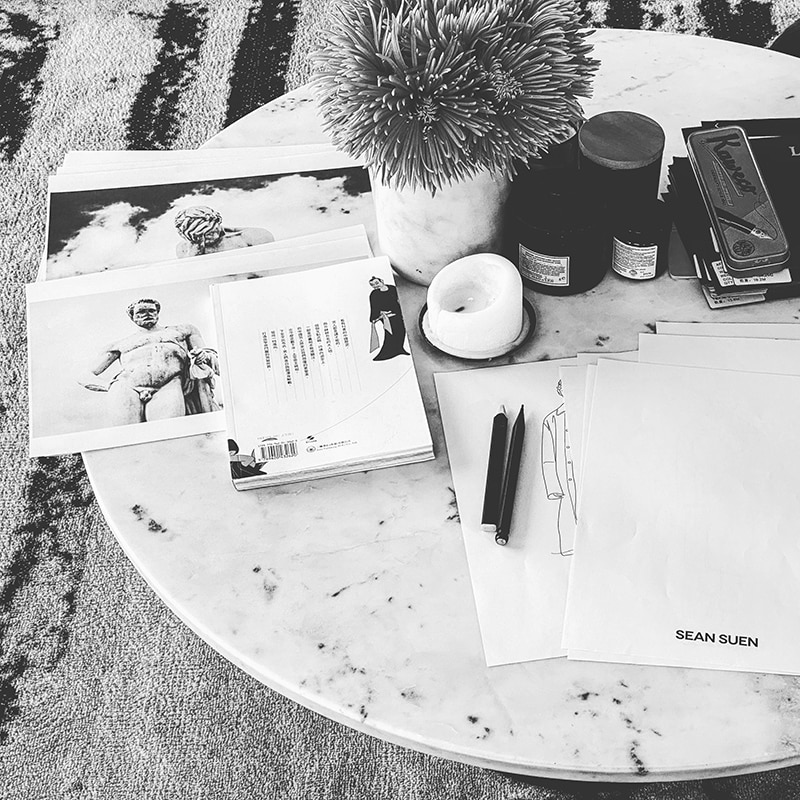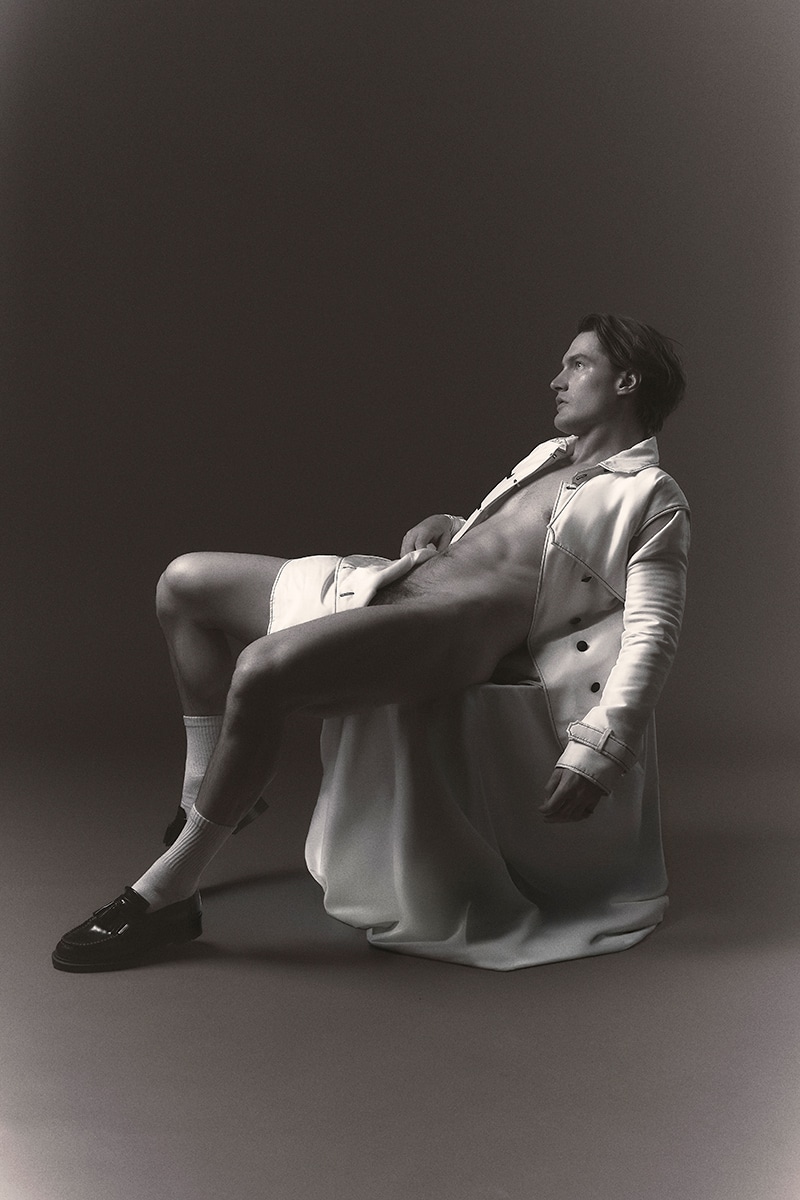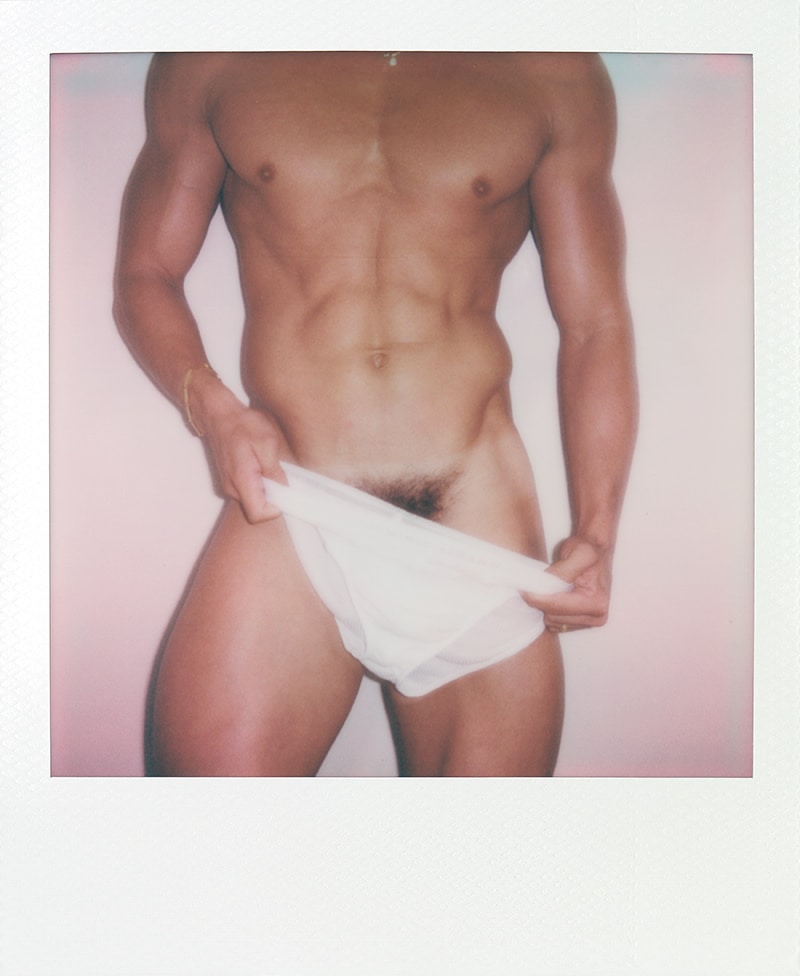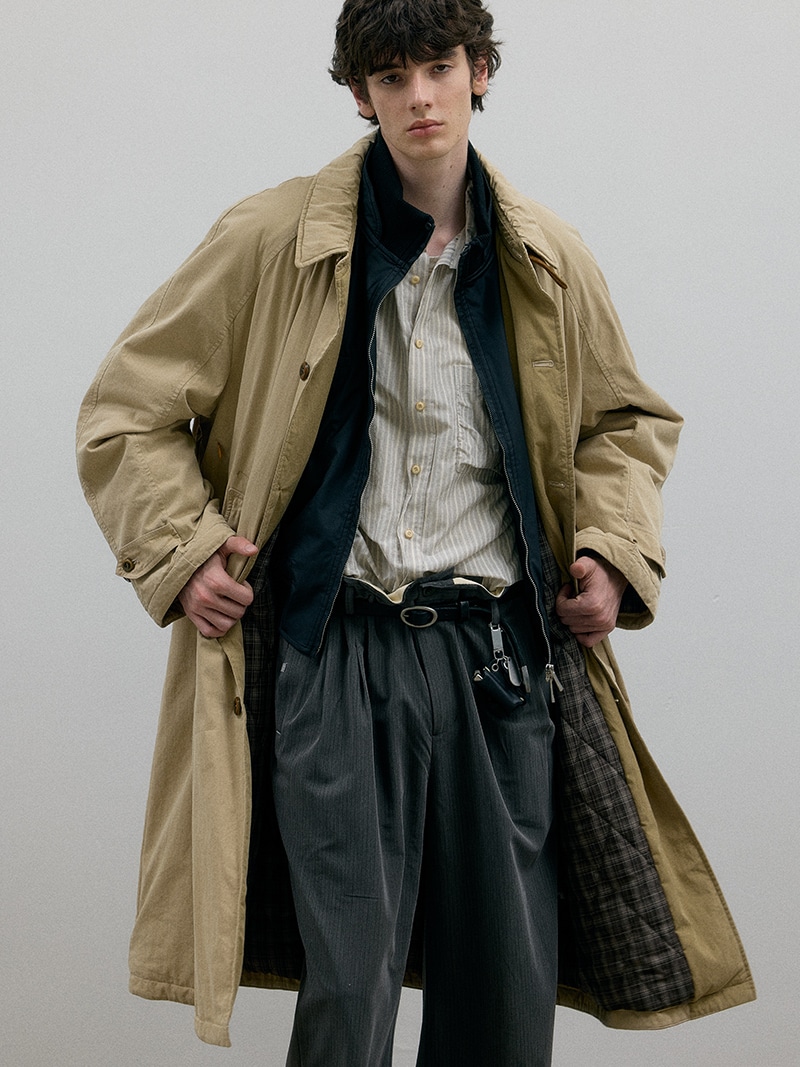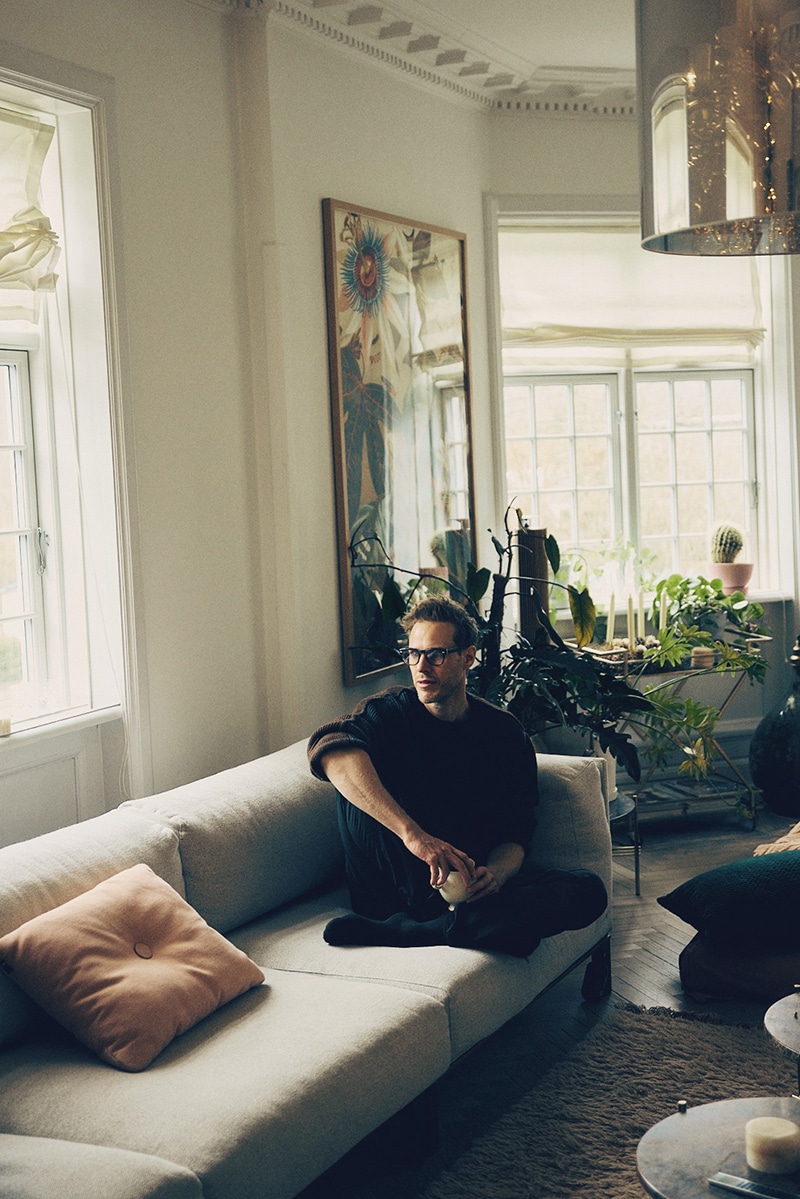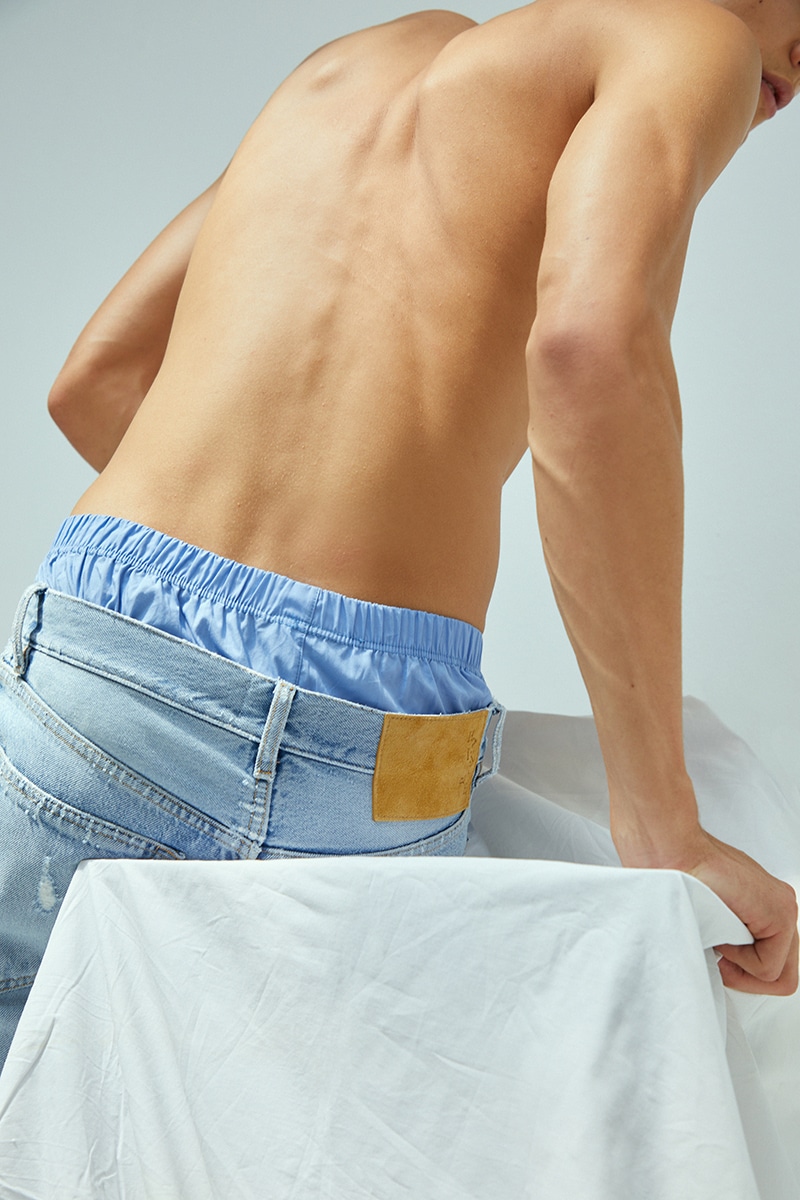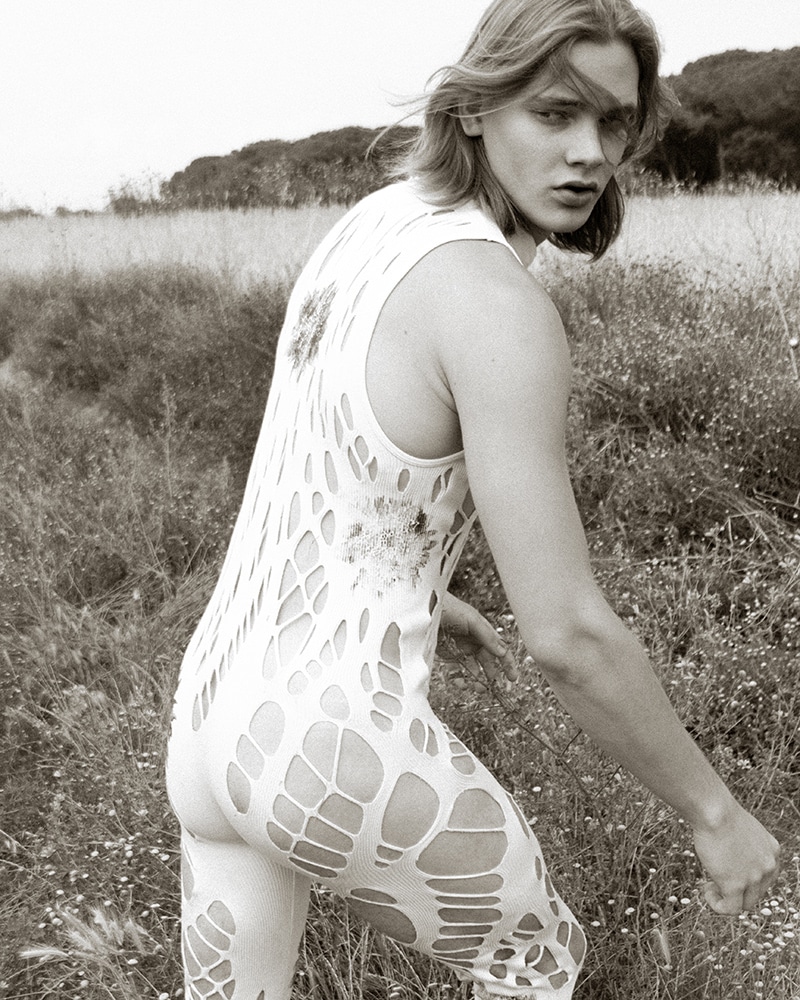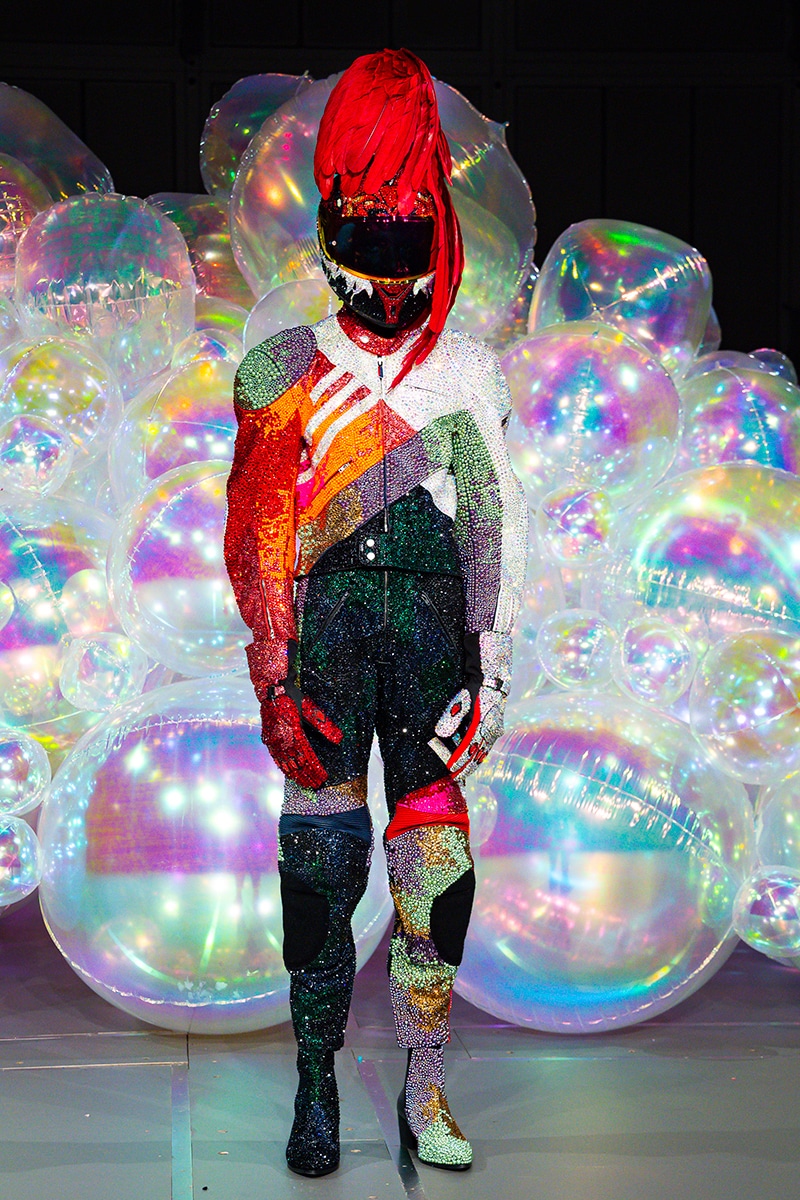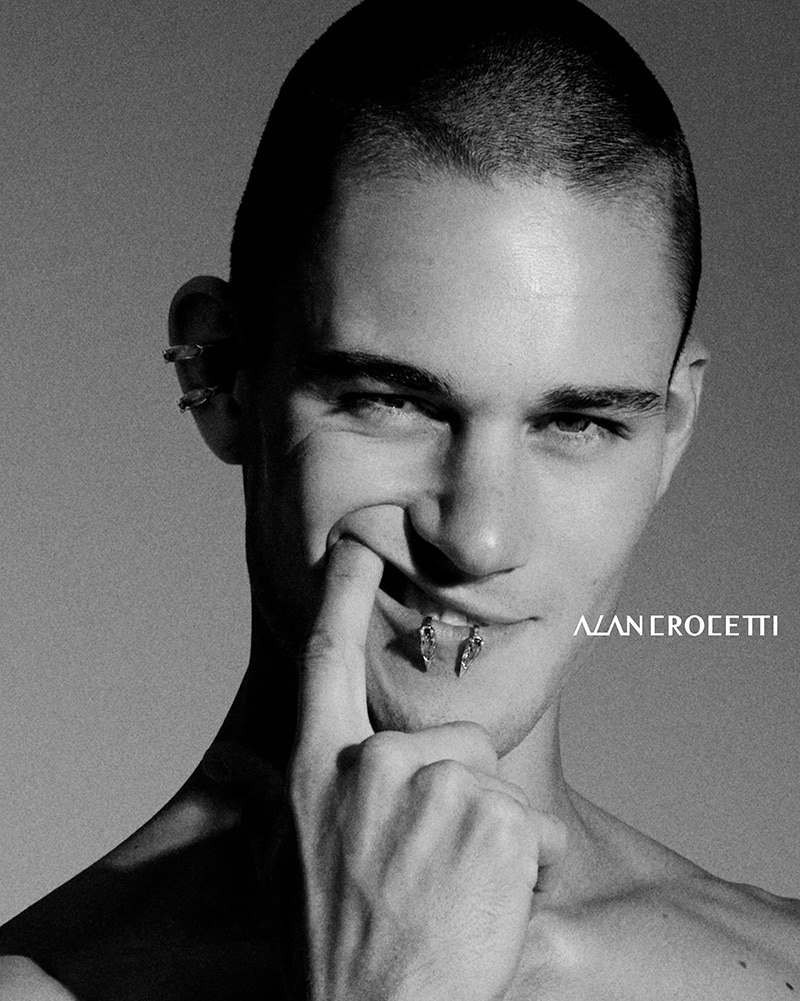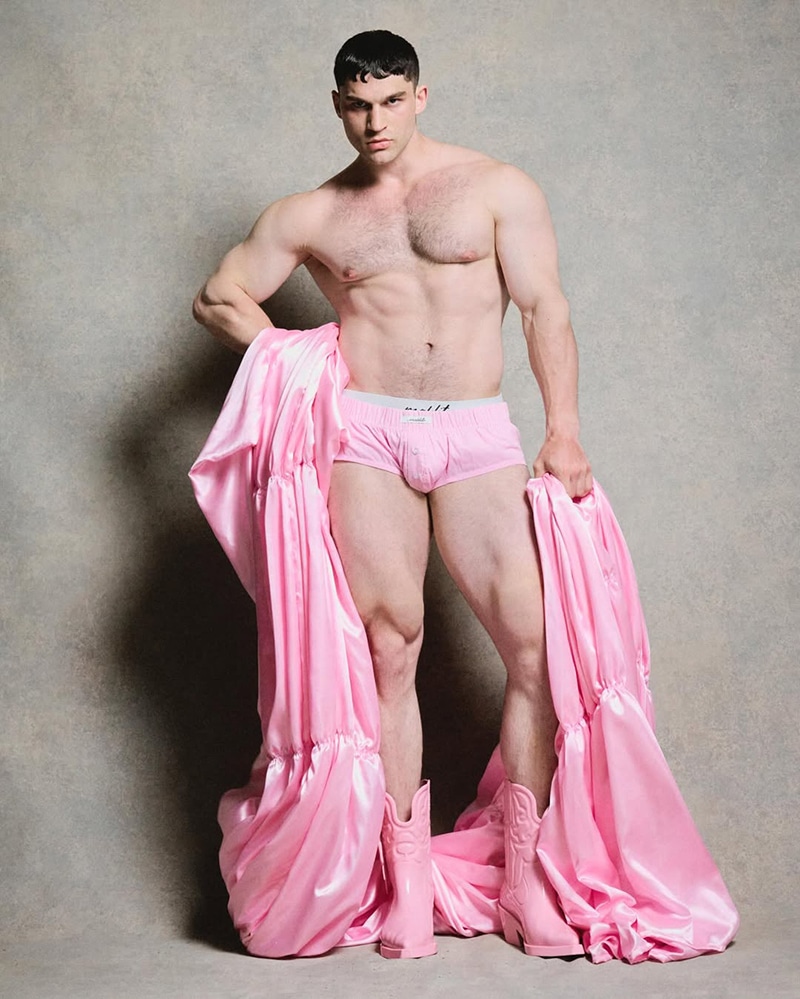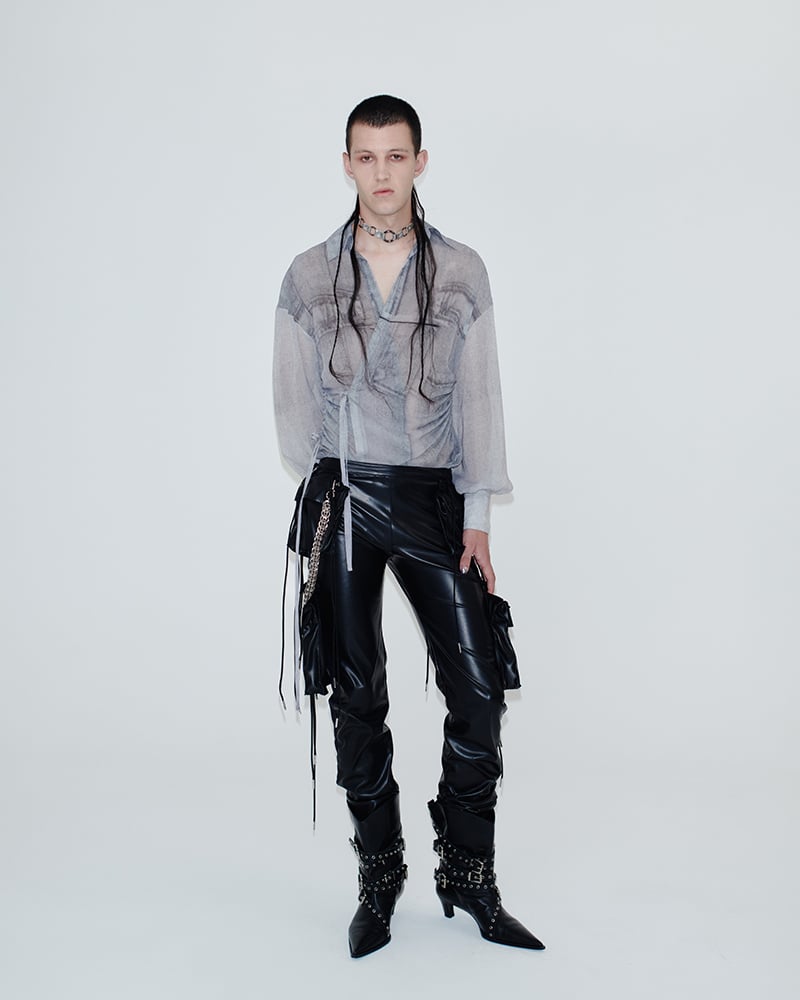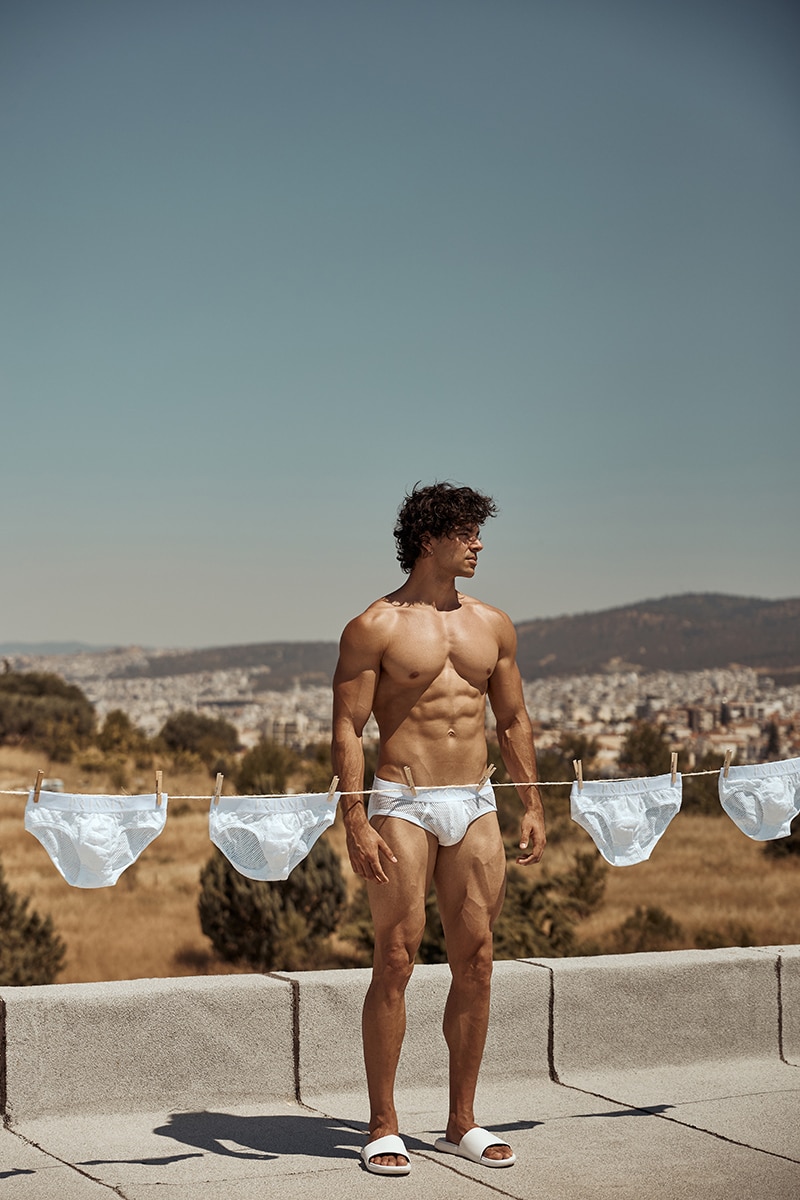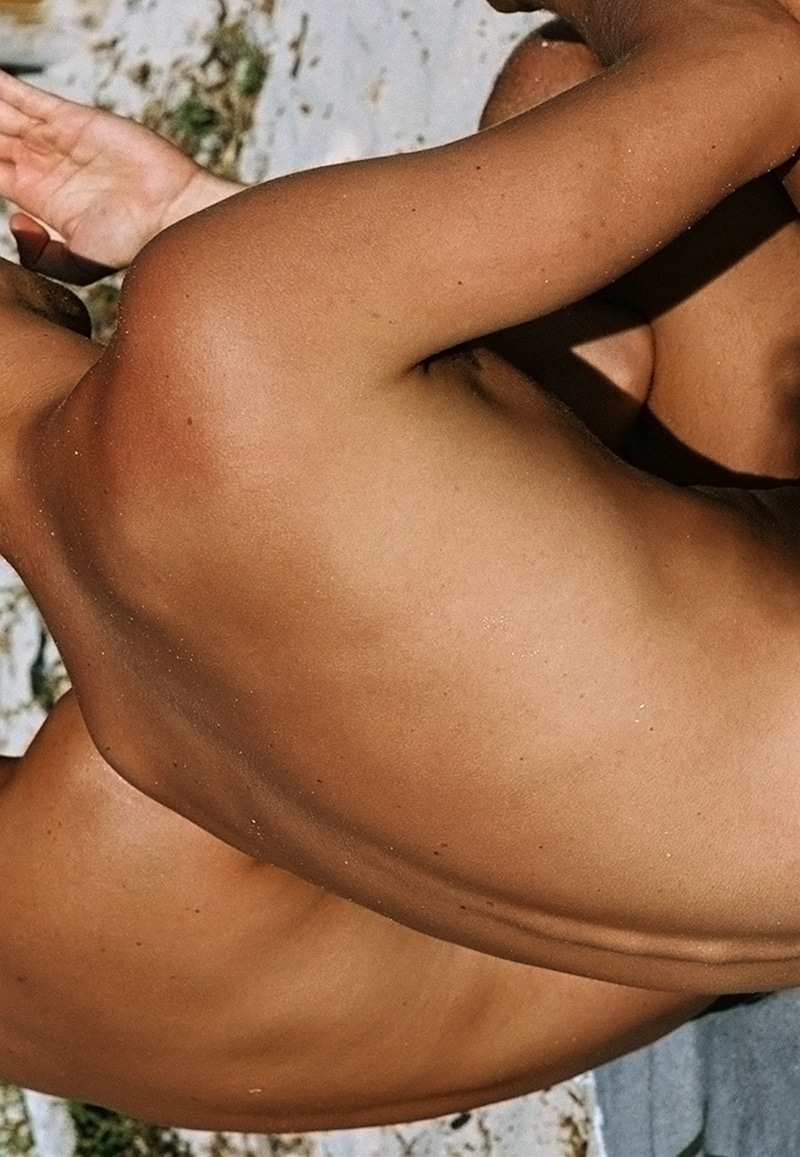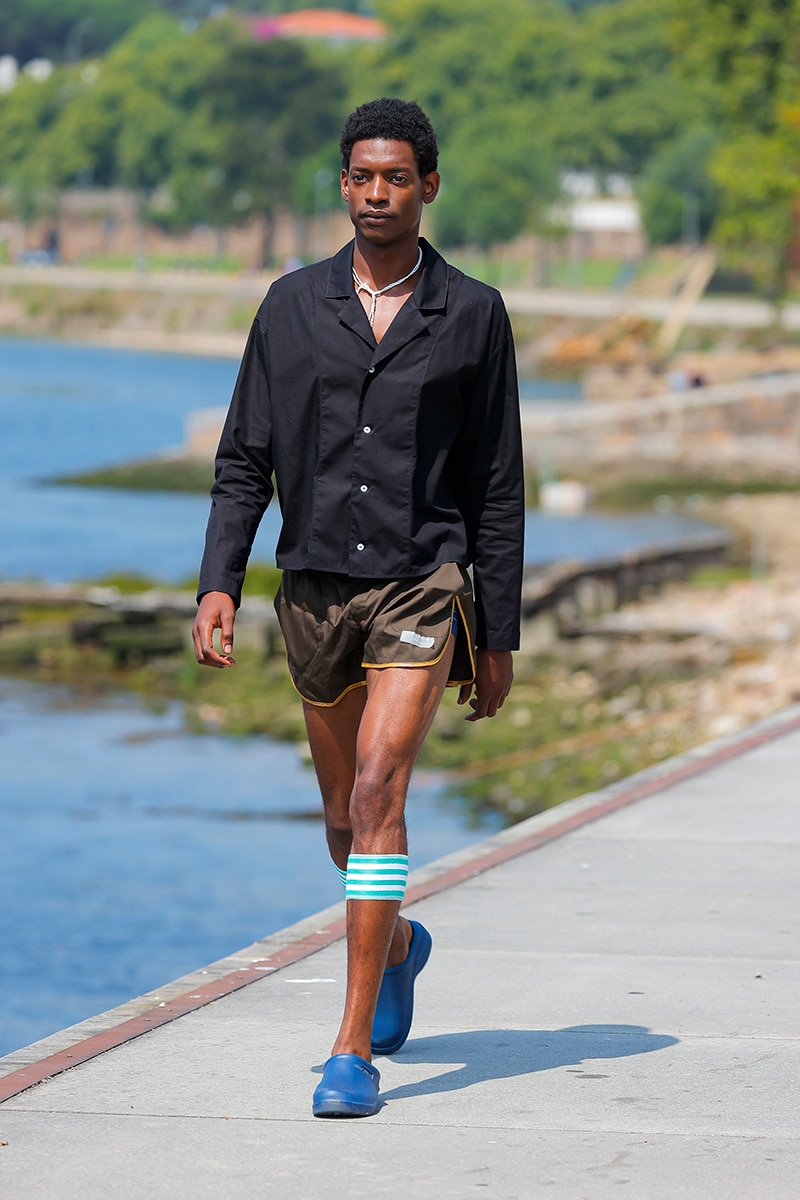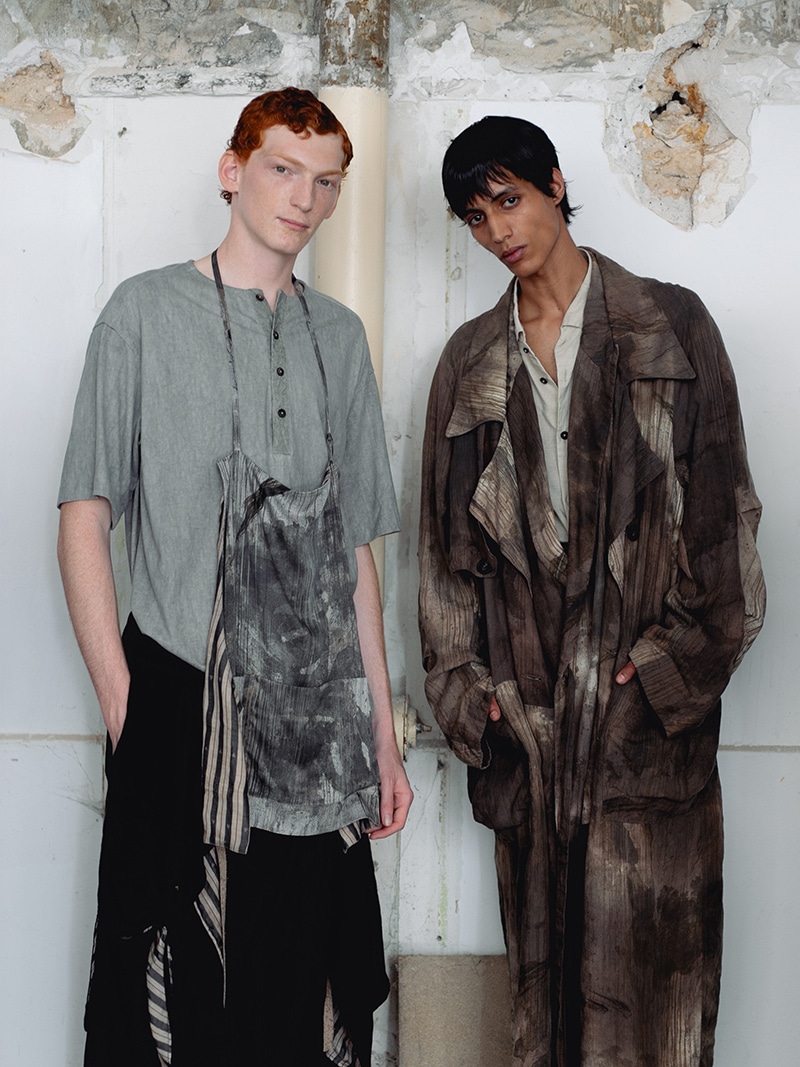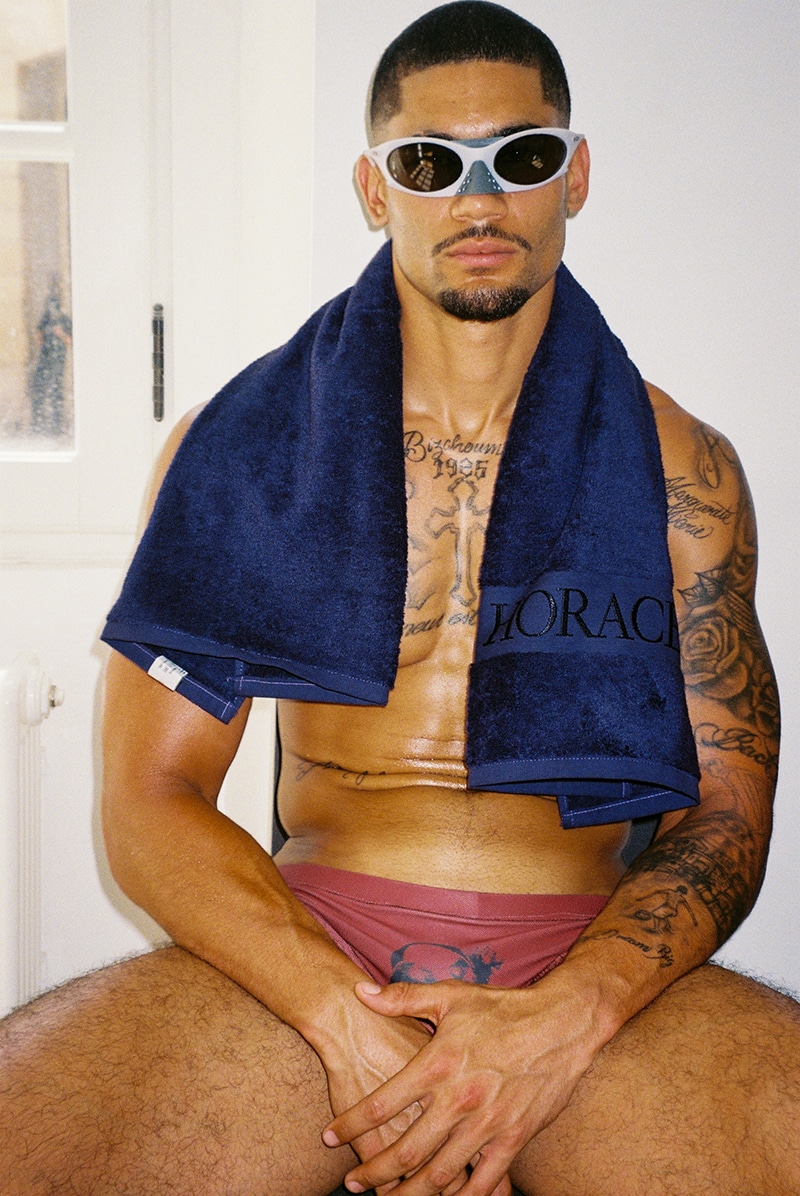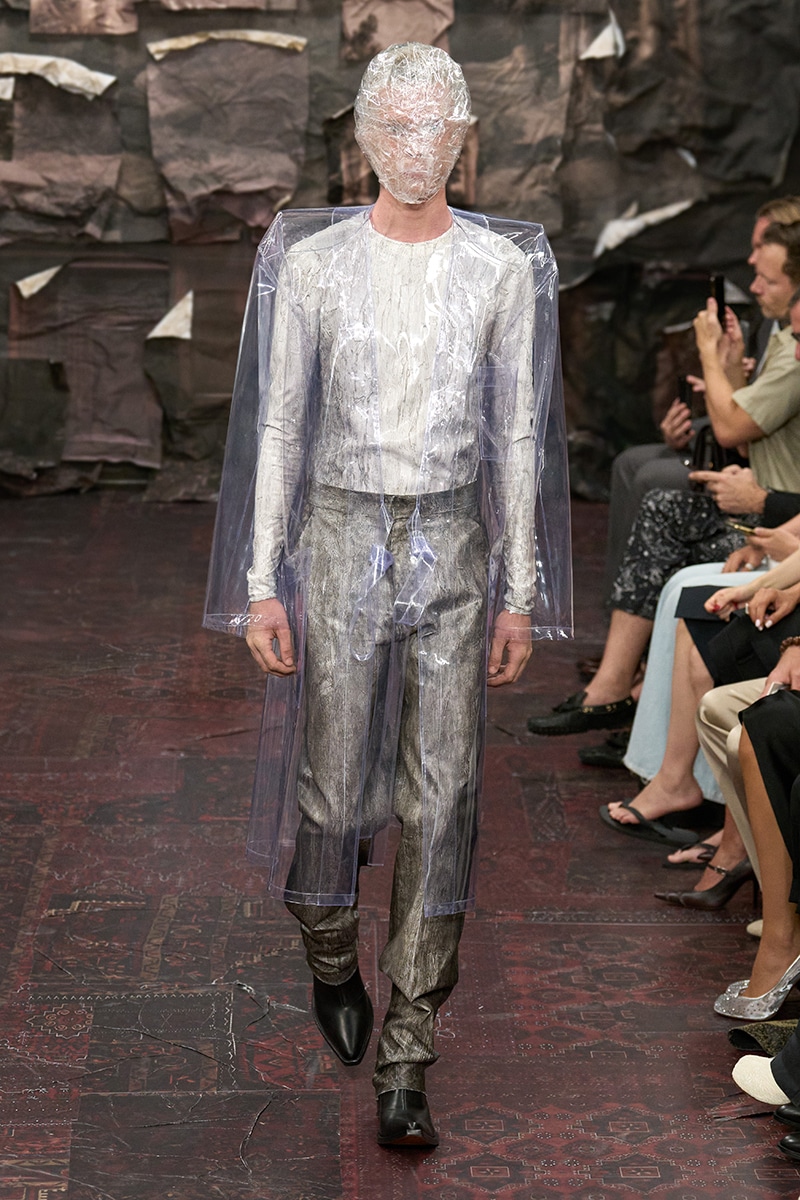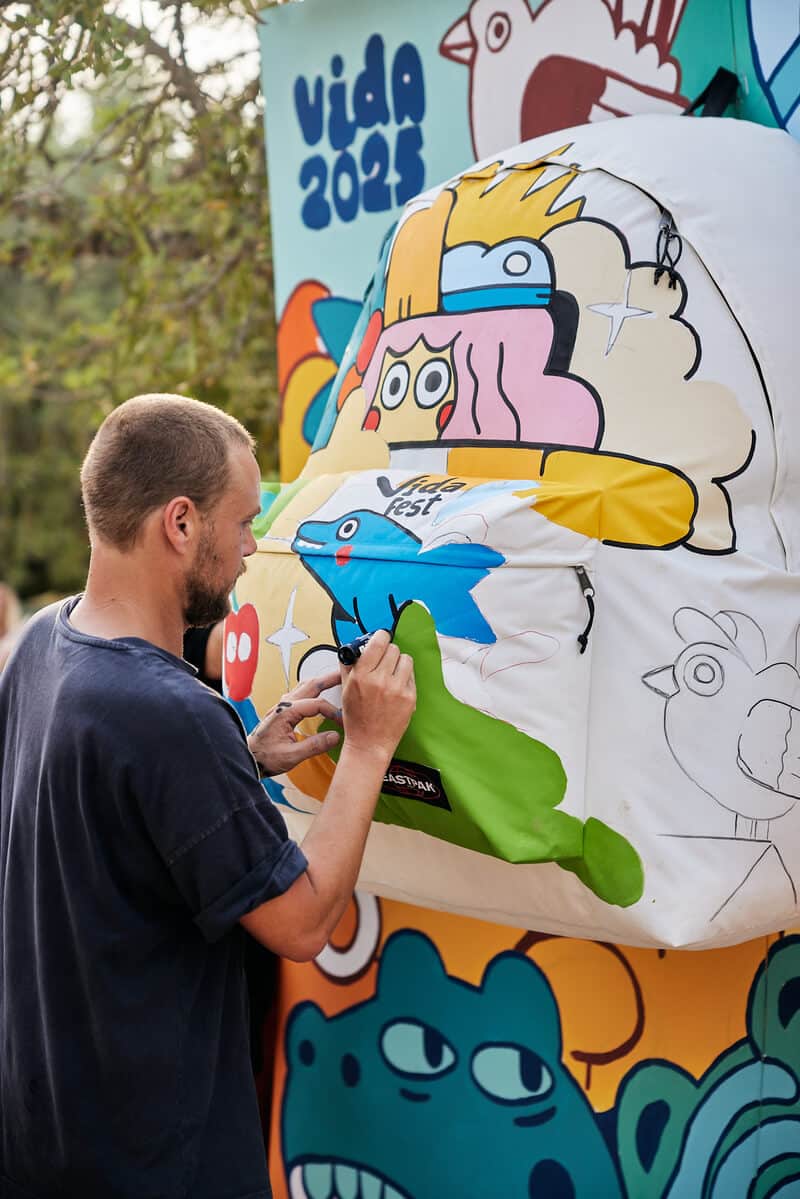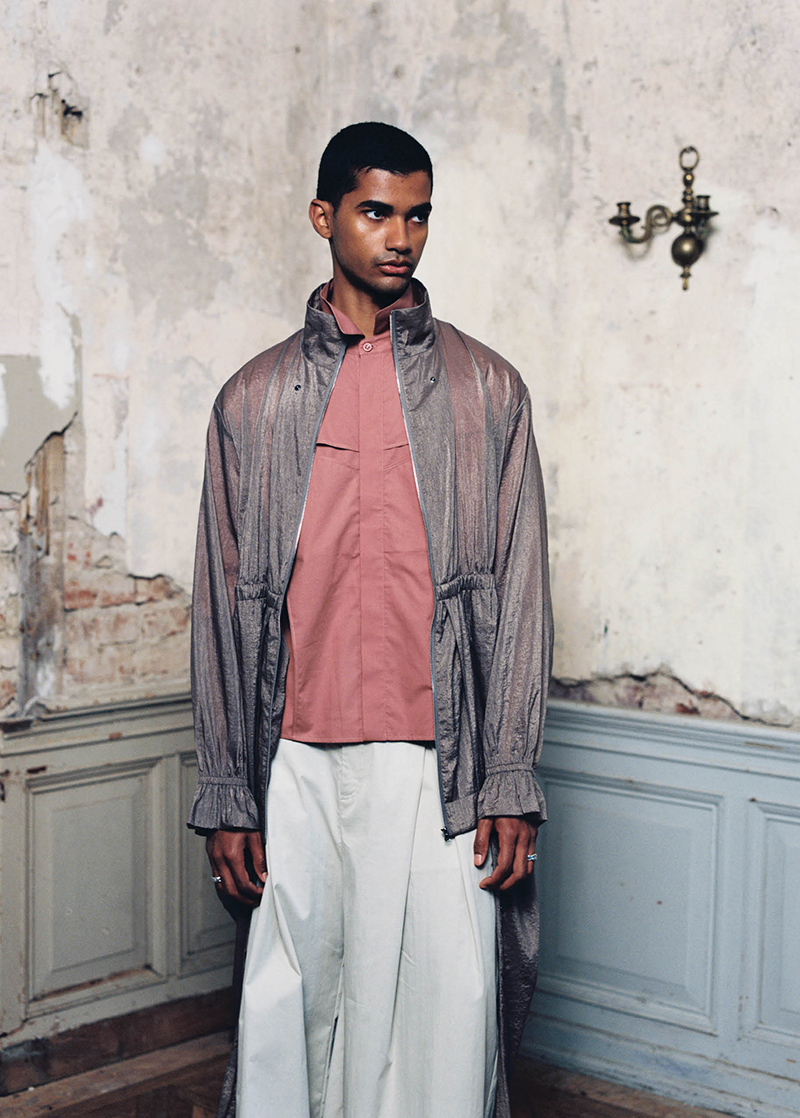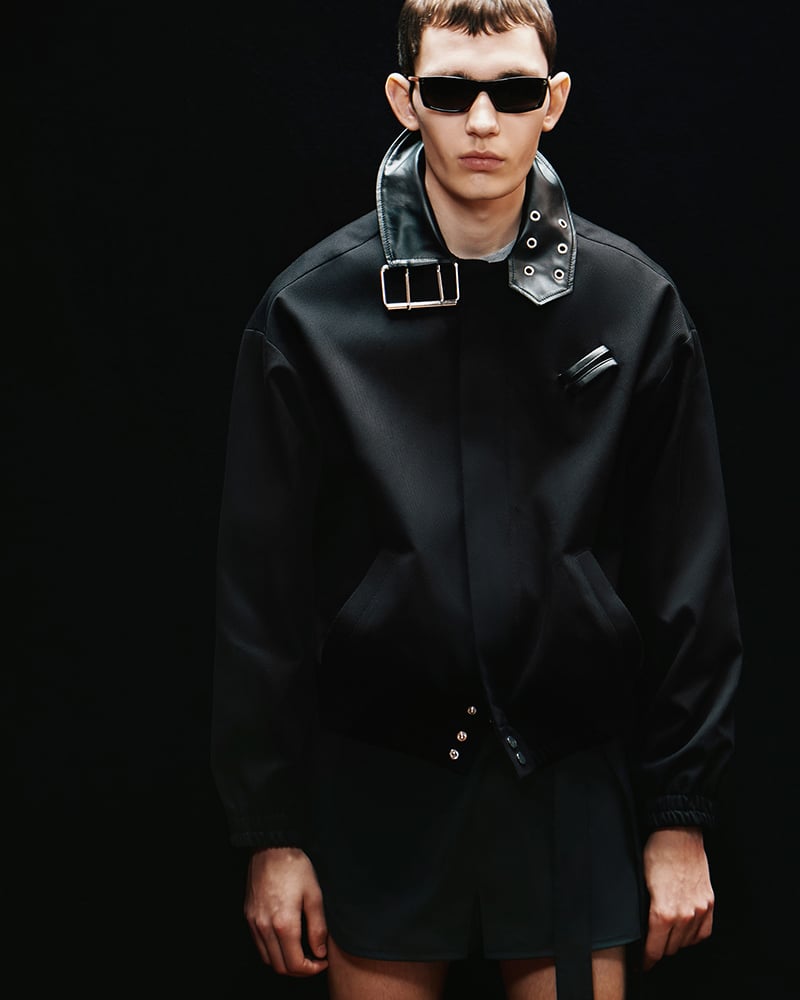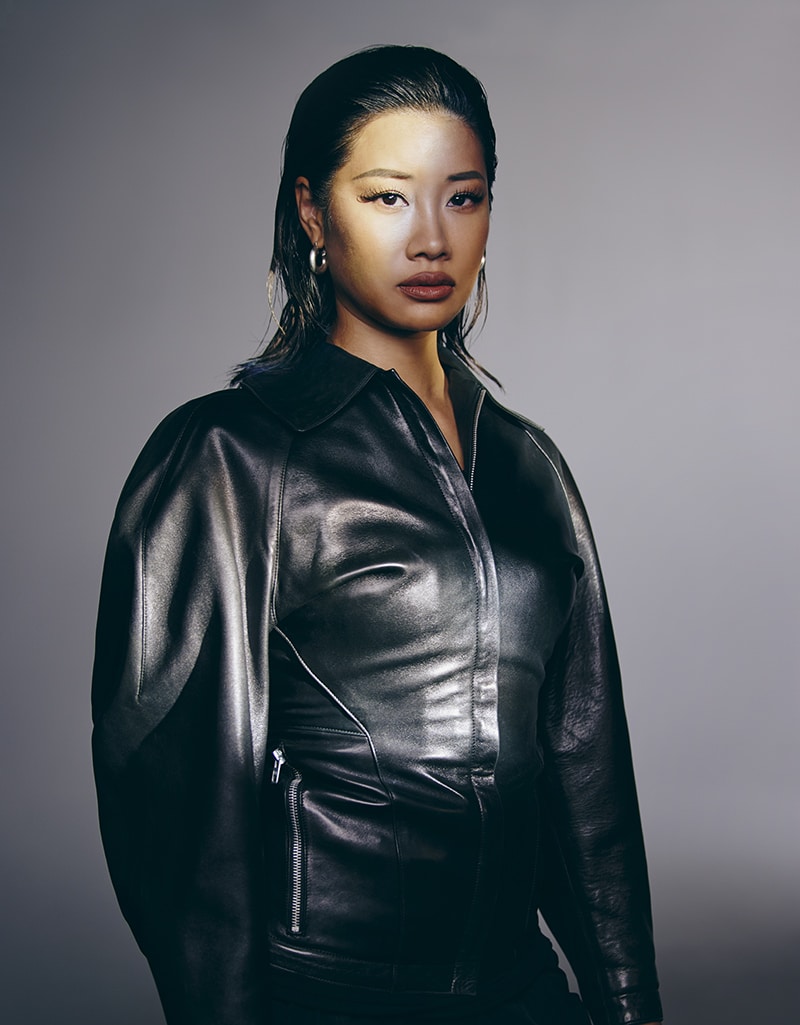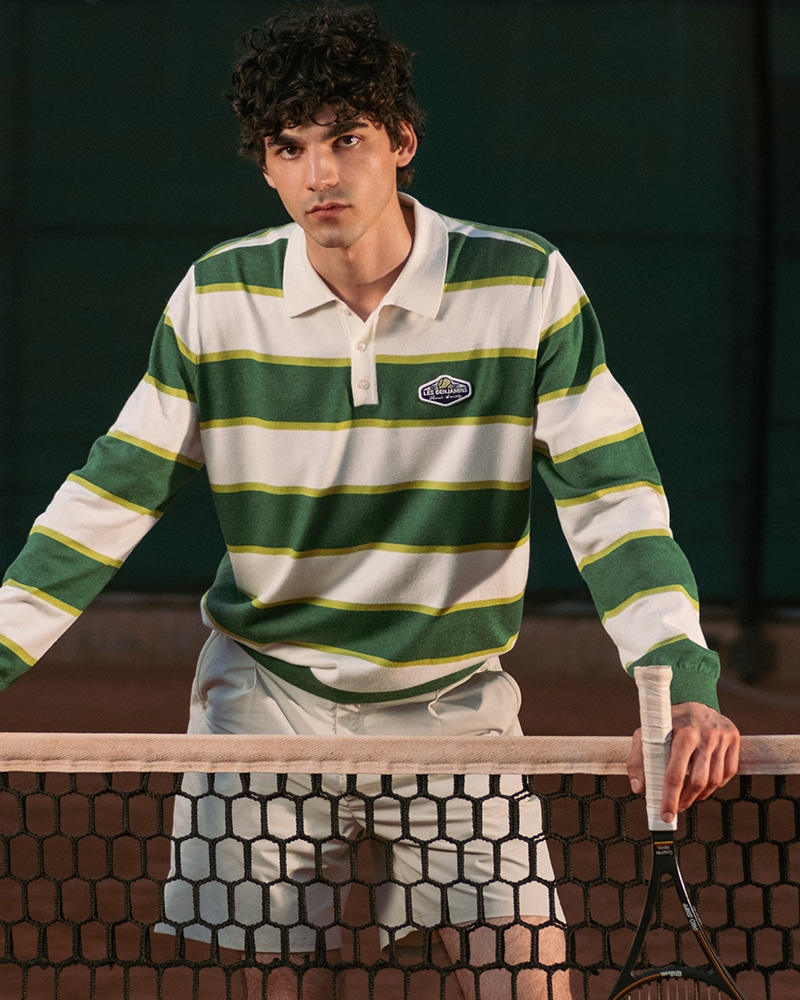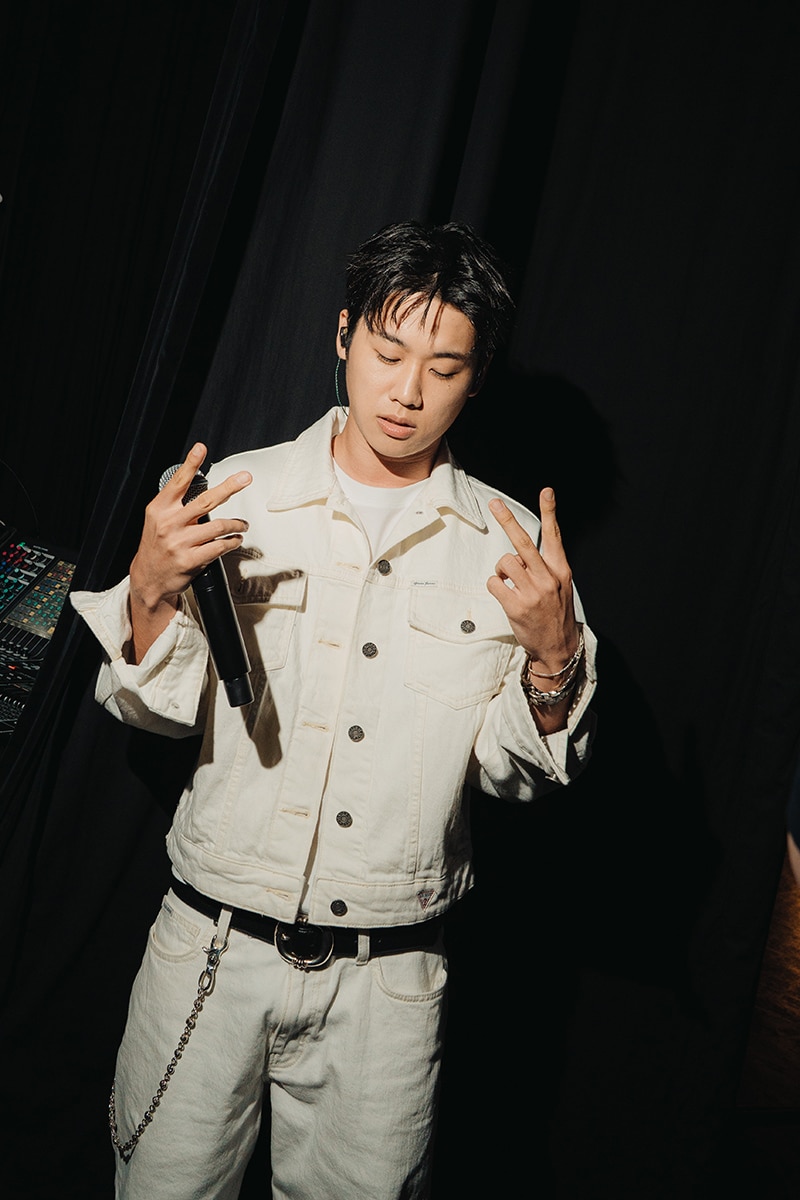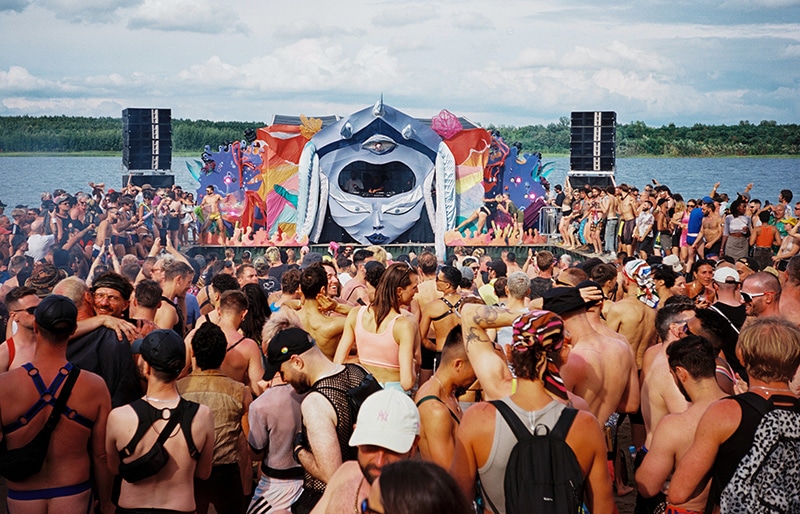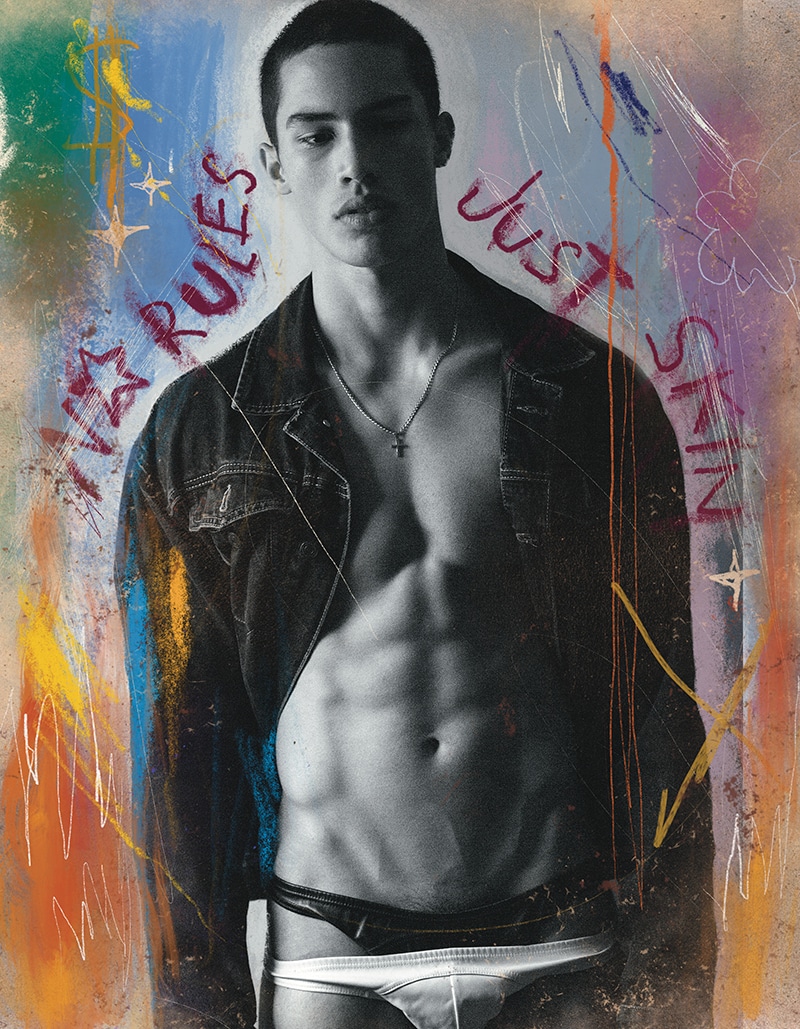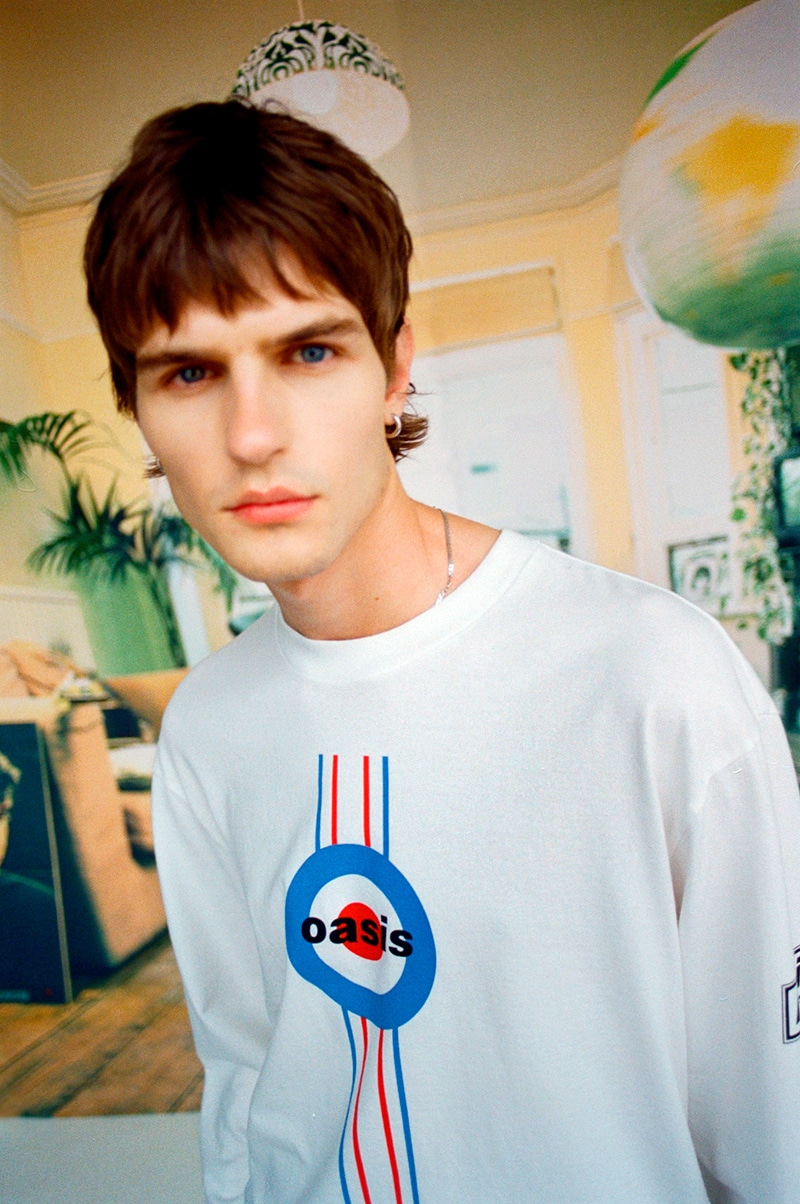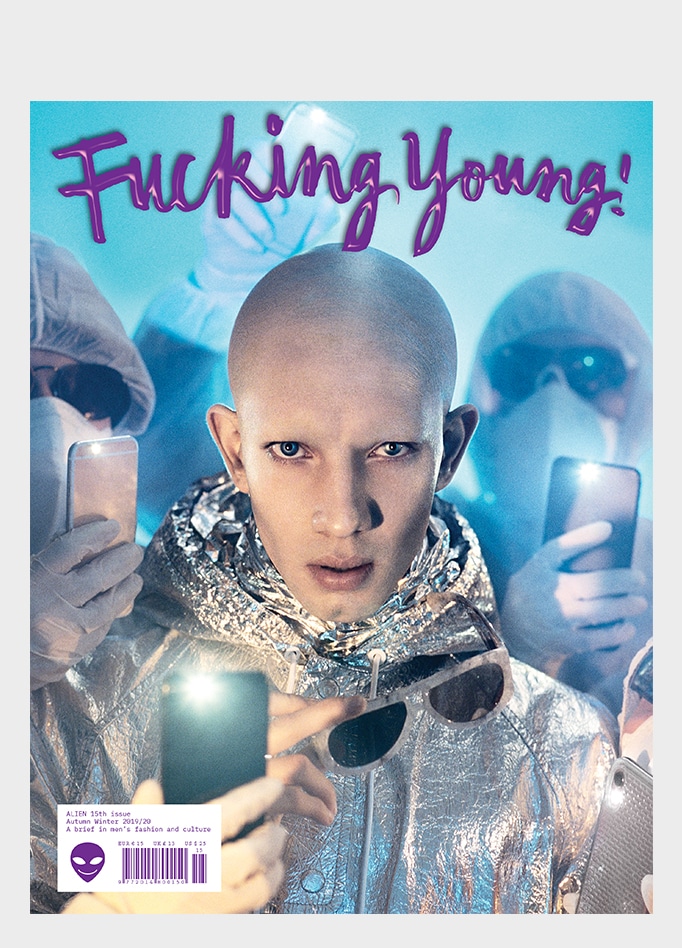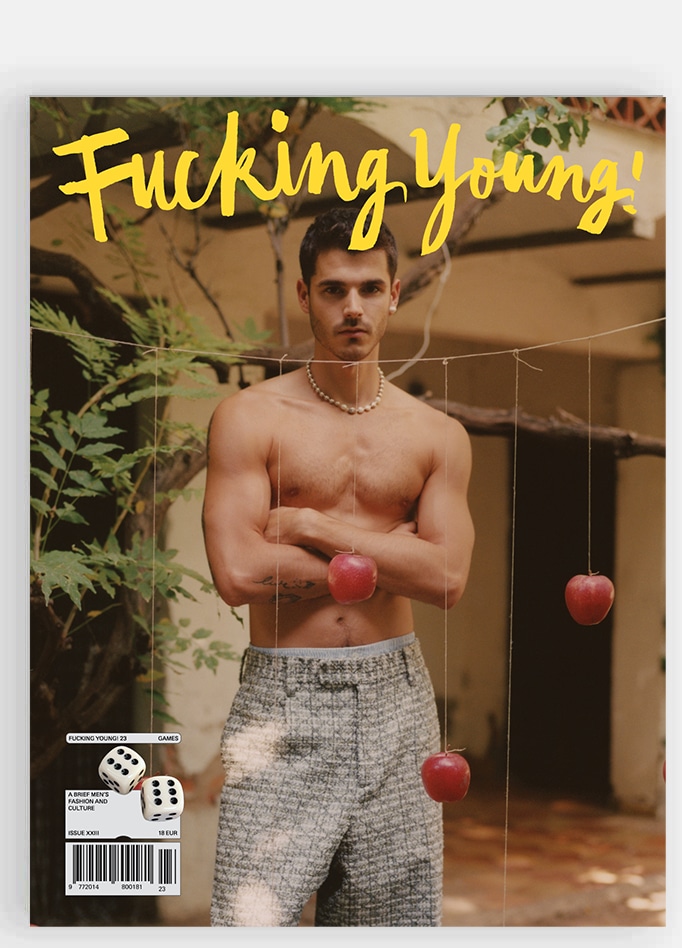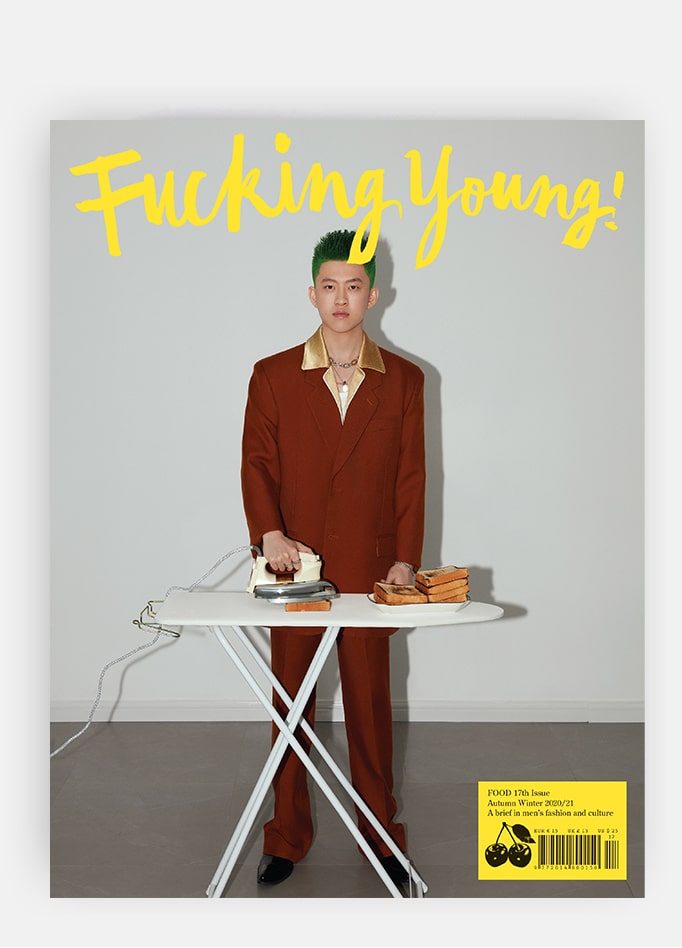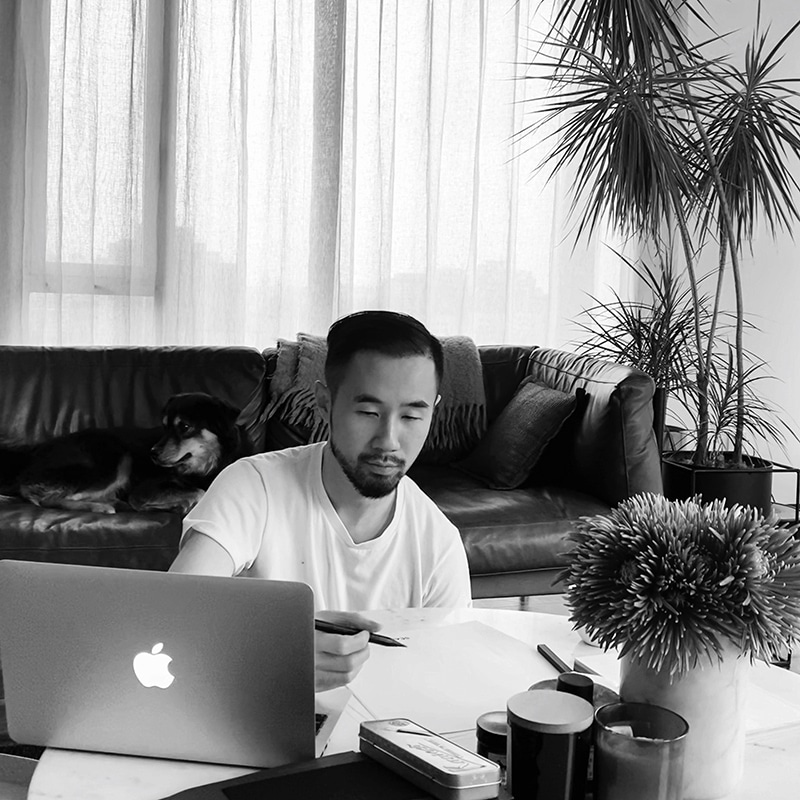
Sean Suen working from home.
Though there may well be a swarm of brands tackling conversations of “ethics and conscious approaches of craftsmanship” behind their ethos, only a few of their records are check-out worthy. As times are shifting ever surprisingly and require the development of new frameworks (case in point, the future of fashion post-COVID-19), it’s not just about making the clothes for a crafting sake: On a metaphorical level, there needs to be a semblance to a multifaceted storyline able to connect consumers through a unique point of view. On this occasion, we talked with Paris-hailed designer Sean Suen, the Chinese creative lead, founder and director of his namesake label who decodes hefty fashion by orchestrating hybrids into loose, sophisticated and dynamic garments. With a penchant for minimalist design teamed with unconventional details, Suen made the cut by exploring bold-faced notions of masculinity adding an elegant edge. “Fashion could do more by reviving that beauty and excitement to the world that first drew me to the industry, to help unite a now-divided world” he rationalizes. As the globe is warping into flustering times, we caught up with the brand to examine existing disruptions, industry-related repercussions, and what the future of the fashion business is likely to be.
How did you venture into the business?
It was a long story: I studied graphic design and fine arts at university. Two years after graduation, I self-thought in fashion design. As time went by, I envisioned what I could do and how far I can push myself. And thing is, it’s still like this now. I am always wondering if I can create more and go further.
Most importantly, as there have been major changes that evolved the approaches and lanes across the business, how did you “make the cut?”
I consider more rigorously what each project needs to achieve and the importance of every employee. But we are still deep in the middle of a pandemic. Things change every day and every week. I don’t want to have an “incorrect” cut. Every decision has a knock-on effect.
What drew you to delve into the creative façade of the industry?
Beauty, creativity, and excitement.
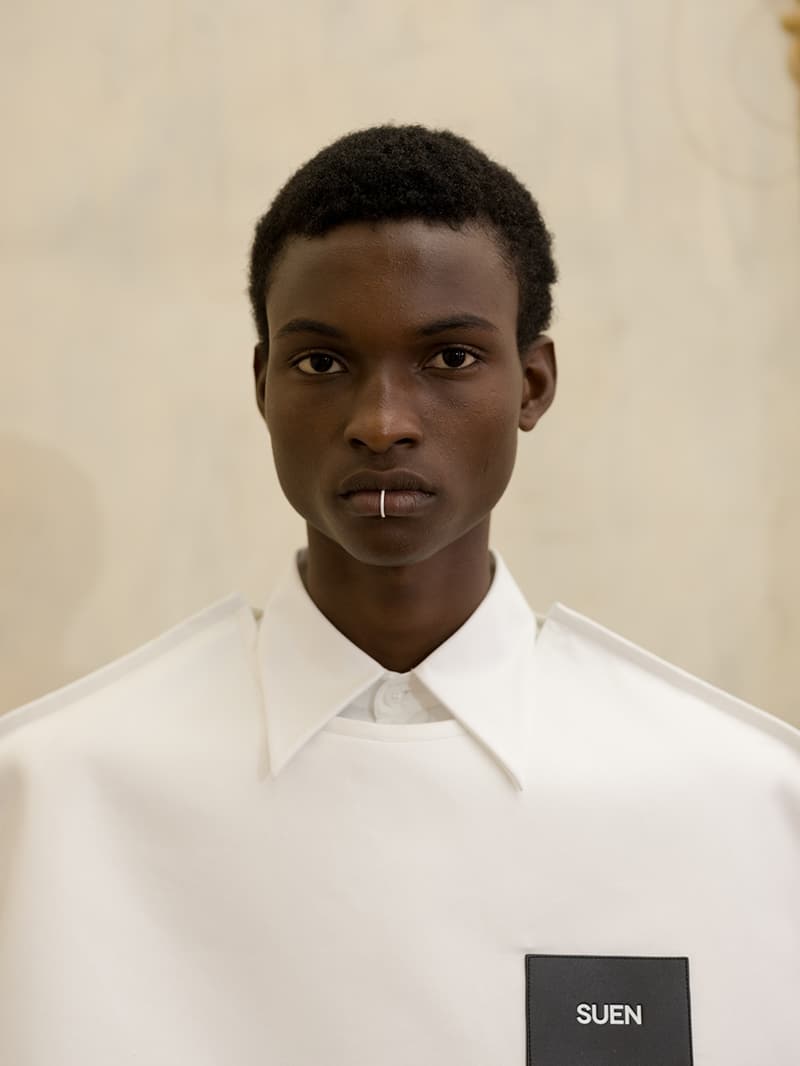
Sean Suen SS20 Backstage shot by Marc Medina for Fucking Young!
In times of turmoil and global disruption, do you feel fashion is taking the right steps to change for the better?
Not sure yet, but here’s a thought: the fashion industry could do more by reviving that beauty and excitement to the world that first drew me into the industry, to help unite a now-divided world.
If so/or not, could we elaborate on the measures that fashion could enact in order to thrive for a much better environment?
As we are still in this pandemic, and the situation is fluid now, we need to think more creatively about how we adapt the change and take action swiftly. I believe this industry as a whole has the creativity and ability to think of ideas outside of the box.
Touching on the cycle of fashion (and its occurrences) – do you believe that the current COVID-19 condition will hinge something revolutionary and trigger a radical scheme of progression?
Yes, I do believe this will hinge something revolutionary – something along the lines of physical distancing and digitalization.
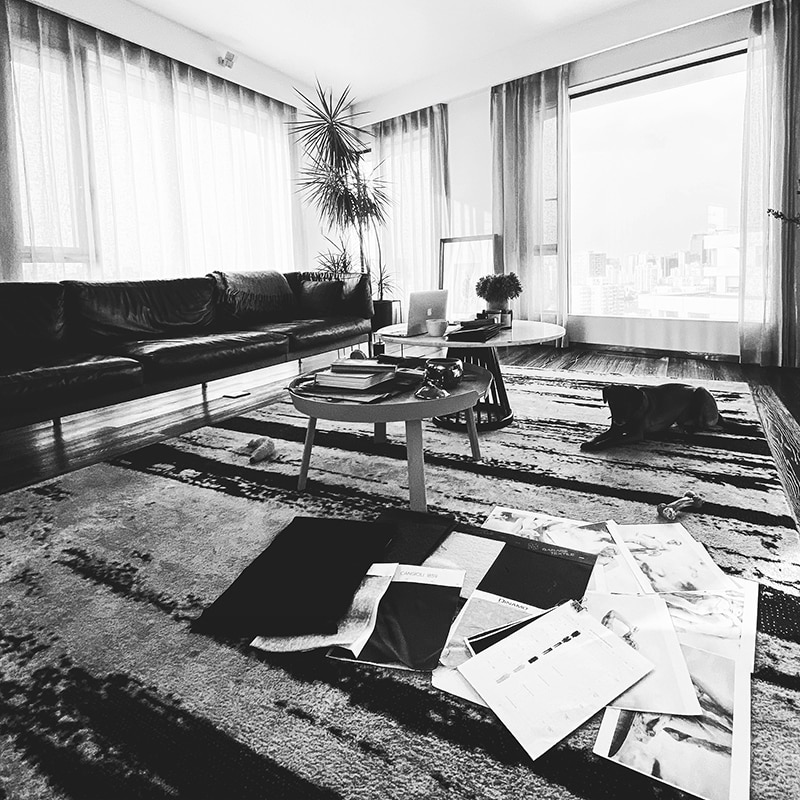
How do you envision the future of fashion, trends and the whole creative avenues?
The era of the internet and social media we are currently in has created an era of flat aesthetics. At the same time, it’s affecting customers and creators. The creators should think more about individuals’ creativity. Moreover, it’s important to allow the powerful creativity of individuals to guide them. Instead of following the popular aesthetic to revise and tweak.
In terms of the Coronavirus pandemic: will it eradicate fast fashion once and for all?
I don’t think so, and I also don’t think it shouldn’t. Different humans have different needs for fashion.
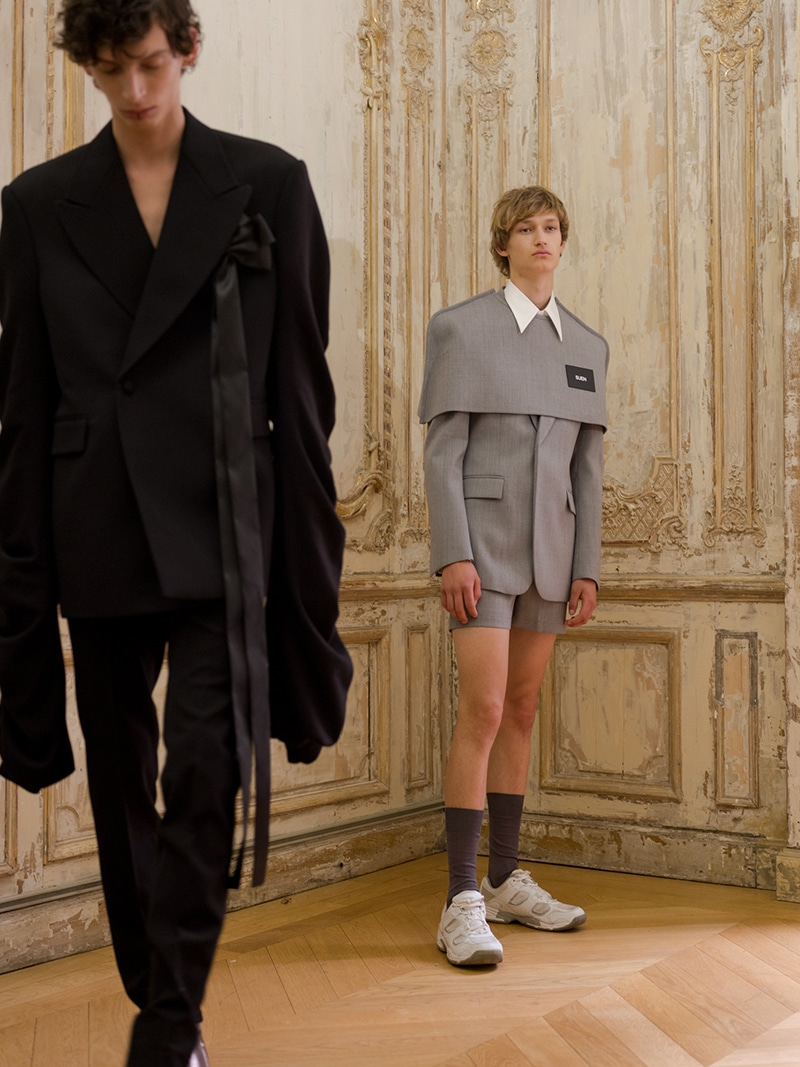
Sean Suen SS20 Backstage shot by Marc Medina for Fucking Young!
Digging (deep) into the shifts in consumerist culture: what could be the next go-to code of conduct that we will embrace from a global perspective?
Surely his pandemic places society at an intersection: it’s possible to strengthen the consumerist culture and have a flatter aesthetic. Or perhaps, everyone turns to rational consumption to produce more independent aesthetics.
Lastly, as a possible recession might be in the loom, what answers are you expecting the creative industry to be clinging onto post-pandemic?
Putting aside the consumption level, the creative industry should stimulate more independent creativity at this time, because people are returning to traditional ways of thinking, which is a good thing to some extent.
